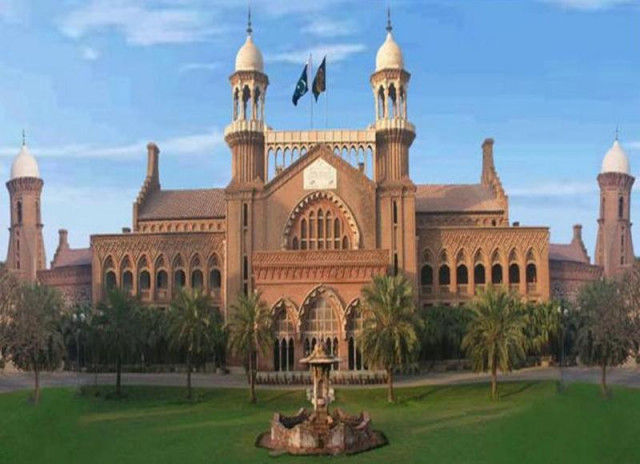Court decree: LHC allows deputy governor of central bank to stay on
ECP says it has no objection over his appointment following finance ministry’s response.

ECP says it has no objection over his appointment following finance ministry’s response. PHOTO: LHC.GOV.PK
The Lahore High Court on Tuesday allowed Muhammad Ashraf Wathra to continue as deputy governor of the State Bank of Pakistan (SBP) after the election commission said it has no objection over his appointment, which was made during its ban.
Justice Syed Mansoor Ali Shah passed the order after hearing a petition against appointments made by the government in the wake of a ban imposed by the election commission. The petition was also seeking enforcement of Articles 62 and 63 of the Constitution during scrutiny of the candidates for the upcoming elections.
On Tuesday, the counsel for the ECP told the court that the finance ministry had sent a reply to the commission with regard to the appointment of Wathra. The counsel said the ministry had maintained that the appointment of Wathra was meant for the operational needs of the SBP and served no political purpose. The ECP, according to the counsel, had approved the ministry’s reply and did not want any further action in the matter.
In light of the commission’s reply, the judge disposed of the matter.
The judge reproduced the relevant excerpt of the ECP’s reply in his order sheet as: “The position taken by the ministry of finance has been accepted and ECP has no objection if Ashraf Mahmood Wathra continues as deputy governor SBP as his appointment is not for any political gain and does not amount to pre poll rigging.”
Justice Shah, however, observed that the primary constitutional responsibility to ensure fair and transparent elections is vested with the ECP under Article 218 of the Constitution, adding that the role of the courts is to support and facilitate this constitutional function unless the ECP’s moves are not in accordance with the law.
Addressing loopholes in the scrutiny of the candidates, a director of the ECP explained the process of verification of candidates contesting elections. Upon receipt of nomination papers by returning officers (ROs), he said, candidates’ names were to be dispatched to the ECP. Later, the ECP was required to send the names to NADRA. After verifying the CNIC number and providing the family tree of the candidate, NADRA is supposed to forward the names to the National Accountability Bureau, Federal Board of Revenue and the SBP for further verification.
When asked whether a full list of candidates in Punjab could be presented by the ECP, along with the list of candidates against whom at least one of the authorities had given adverse findings, the director said no such data was available with the commission so far.
Hearing this, the petitioner’s counsel Azhar Siddique argued that it was possible that the ROs might have sneaked in the nomination papers of defaulters, as there was no record with the ECP to verify the credentials of the candidates.
Justice Shah then directed the ECP to tabulate the aforementioned list and to tabulate the list of candidates whose cases were coming up in appeals before the election tribunals.
The judge appointed Lahore High Court Bar Association’s president and vice chairmen of Pakistan Bar Council and Punjab Bar Council as amicus curie to assist the court in the matter.
Justice Shah observed that Chief Justice Umar Ata Bandial had constituted a full bench to hear the cases pertaining to the election process and directed the law officers, and counsel for the ECP to place before the bench all the lists, documents and records of the case at the next hearing.
The full bench headed by Justice Ijazul Ahsan will begin hearing the petitions on Wednesday (today).
Published in The Express Tribune, April 10th, 2013.



















COMMENTS
Comments are moderated and generally will be posted if they are on-topic and not abusive.
For more information, please see our Comments FAQ